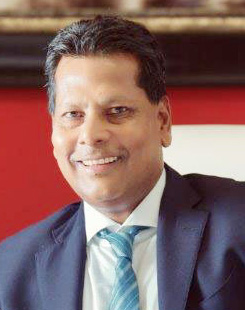One of the newly-formed political parties, Change Guyana says that the current government structure relies on taxation rates that are too heavy and that there are not enough investment incentives.
In a press release on Tuesday, the party headed by businessman Robert Badal stated that it has “noted with concern” the remarks made by the Finance Minister, Winston Jordan, who labelled the private sector’s view that heavy taxation was restricting business operations over the years as a “ruse”. Change Guyana said the onerous taxation is not restricting business operations per se, rather, it is restricting investments.
According to Change Guyana, new investments need to be incentivised for the same reason foreign investors benefit from massive incentives – to attract foreign direct investments. It gave as an example the ExxonMobil contract and noted that Exxon has been exempted from paying taxes for the life of the project. In fact, the party noted that the Government of Guyana has to pay Exxon’s corporate taxes from the Government of Guyana’s share of the profit. They have been exempted from VAT and import duties on all equipment that they would need to import for their operations.
Mention was made of a working paper published by the International Monetary Fund (IMF) in 2008 which comprised a study on Corporate Income Tax (CIT) Competition in the Caribbean. That study, the party says, consistently showed Guyana as having the highest corporate tax rates over all years studied.
And as far as Change Guyana is concerned, “Without getting too technical by delving into the myriad of heavy taxations in Guyana, if we are going to have one of the highest corporate taxes, then this by itself inhibits the competitive nature of private sector businesses from making new investments.” The party then goes on to question the ability of local companies to become competitive against their Carib-bean counterparts who operate within a much more competitive and business-friendly fiscal environment, when they are subject to the highest level of corporate taxation.
The party further opined, “The reliance on heavy taxation to finance big, bloated governments under successive PPP and APNU administrations has given our Government the largest share of the national pie by transferring resources from the private sector and citizens alike. Why would the Government of the second poorest country in this hemisphere, after Haiti, with a quarter of the per capita income of little Antigua, pursue a policy of high taxation and big government that restricts investments, creates poverty and joblessness rather than a more growth- oriented policy of lean government and low taxation that creates jobs and lifts us out of poverty.”
In this context, Change Guyana says it embraces a policy of low taxation that would expand economic opportunities by attracting investments in a resource-rich country like Guyana.
Badal, the presidential candidate of Change Guyana, in expressing his view on taxation declared, “The reliance on extortionary levels of taxation over the past three decades is the largest failure of economic policy in our history… To buy a car one has to pay for two to three cars depending on the size of the engine. This is nothing but state extortion.” He added, “These realities need to change if Guyana is intended to become more nationally competitive and where private sector businesses can produce more value-added goods and services and engage in more risky investments to foster broader and more sustainable economic growth and development.”
Change Guyana went on to declare its intention to pursue a policy of low taxation supported by a lean, business-oriented Government that creates jobs and alleviates poverty by giving the private sector and Guyanese generally more control of their earnings, instead of “extracting maximum taxes to finance a corrupt Government.”





